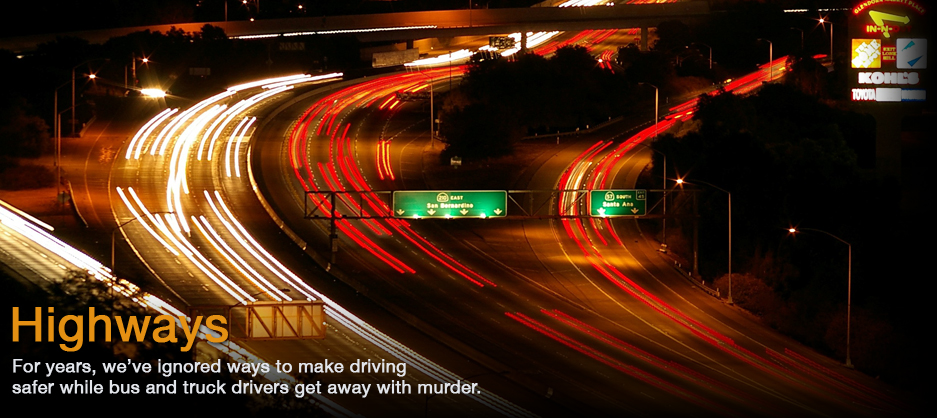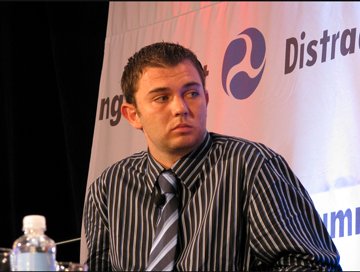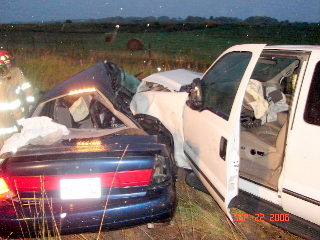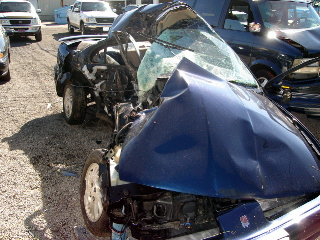The Trials of a Texter
Published 5 Oct., 2011
Reggie Shaw sometimes has nightmares.
He dreams he’s back in a Utah jail serving time after he killed two men. They died in a crash Shaw caused when he texted his girlfriend on his cellphone while driving on a stormy mountain road.
Shaw might dream he’s sitting on his thin, blue mattress in a locked cell for 23 hours. Or, he dreams he’s among inmates who despise him because they find his 30-day jail sentence too lenient for two counts of negligent homicide.
Then he wakes, rushes out of bed, opens his bedroom door and his window.
The night air, the stars, the cricket chirps – they all help Shaw understand he is no longer in jail.
He tells himself his nightmare is over.
But he is haunted by his memories.
He killed two people.
He can never forget.
Thousands Die Each Year
Shaw’s 2006 accident and his emotional testimony before the Utah Legislature sparked the passage in 2009 of the toughest texting-while driving-law in the nation.
Other states followed Utah’s lead in prohibiting texting behind the wheel. In July, the National Conference of State Legislatures reported that 34 states and the District of Columbia now ban texting while driving. Another nine states and the District of Columbia now ban talking on cellphones while driving, the NCSL reports.
Safety experts lump texting-while-driving into a category called “distracted driving,” which can include everything from cellphone texting to changing a radio station, applying lipstick or shaving.
Such seemingly harmless activities behind the wheel have killed nearly 27,000 Americans from 2004 to 2009, the last year for which statistics are available, according to the Governors Highway Safety Association.
The ongoing fatalities caused by distracted driving have sparked a debate among safety experts. While some say offering financial incentives to drivers is the best way to change distracted driving behavior, others claim enforcement and public awareness programs curb distracted driving accidents.
For Reggie Shaw, now a 24-year-old college student who lives in Salt Lake City, the debate comes too late.
‘What Happened?’
Shaw was a 19-year-old house painter on the stormy morning of Sept. 22, 2006. As he drove to work through the mountains of Northern Utah, pockets of hail hit the windshield of his Chevrolet Tahoe.
He told himself to drive cautiously to avoid hydroplaning.
Shaw texted his girlfriend instead.
He thought he could drive and text safely because nothing bad had happened before.
Shaw shared 11 texts with his girlfriend during 30 minutes while on a two-lane highway. Later, he would say he could not remember what the texts said.
After he pressed “send” for his last text, Shaw’s Tahoe hit a Saturn sedan. The Saturn spun out of control and was broadsided by a two-ton pickup truck. The two passengers in the Saturn – James Furfaro, 38, and Keith P. O’Dell, 50 – were immediately killed. Both were husbands and fathers. Furfaro, a mechanical engineer, and O’Dell, a project administrator, were on their way to work at ATK Launch Systems, a science-based, aerospace company in Promontory, Utah. They were literally rocket scientists.
Shaw called 911 on his cellphone and jumped out of his Tahoe. He ran through the rain to help.
The first question he frantically asked out loud was, “What happened?”
No one knew for sure.
I hydroplaned, Shaw thought.
He didn’t blame his texting.
He didn’t even think of it.


 In No Shape to Drive
In No Shape to Drive

